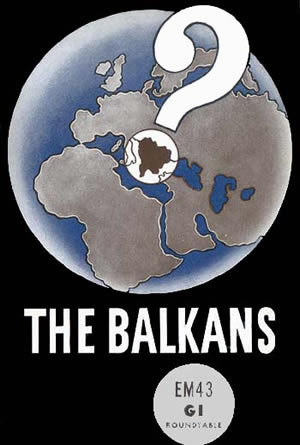By Robert Lee Wolff
Office of Strategic Services
(Published September 1944)
 Table of Contents
Table of Contents
Introduction
One of the characters in Kipling’s novel The Light That Failed is a British war correspondent who “always opened his conversation with the news that there would be trouble in the Balkans in the spring.” Toward the end of the story, when “trouble” broke out in the Sudan instead, he had to admit that he was wrong about the Balkans. But his gloomy prediction could easily have been right; for in Balkan history—as in world history—the theme of violence is unhappily recurrent.
On occasion, troubles that first broke into the open in the Balkan Peninsula have spread and engulfed large parts of Europe and even, in 1914–18, of the world. The complex clash of forces that has given the Balkans the name of “powder keg” and “tinderbox” of Europe may well spark future world conflicts if a lasting solution is not found. And a world war, we now know, even if it starts in some unheard-of corner of the Balkans, involves the United States.
It is important for Americans to understand the problems of the Balkans. Can they be settled? If the Balkans were left to themselves, could they find the way to peace and happiness? Are the troubled Balkans a miniature of the troubled world? And are their problems—on a smaller scale—the problems that plague and perplex the world?
Let the Presses Roll!
As this pamphlet goes to press the lightning progress of the war is forcing the Balkan Peninsula into political upheaval. By the time you read these lines the situation may have developed far beyond what appears here.
It would be futile to hold the presses in an attempt to bring in last minute occurrences. History is being made so fast that in the end the pamphlet would probably lag farther behind events than it does as you read it.
You will need to take this into account, therefore, and to supply from the best possible sources whatever additions and revisions are necessary to bring the story up to the minute.
Related Resources

September 7, 2024
Travel and Trade in Later Medieval Africa

September 6, 2024
Sacred Cloth: Silk in Medieval Western Europe

September 5, 2024